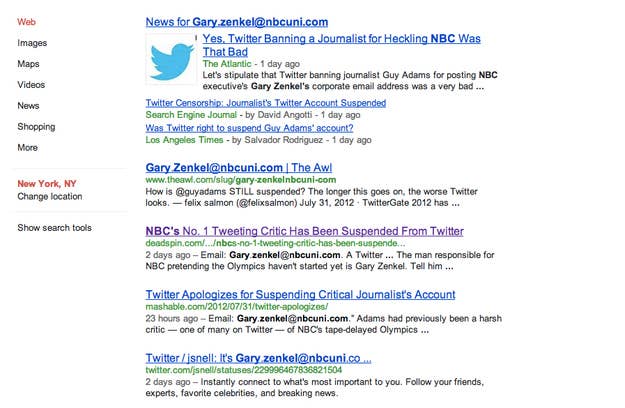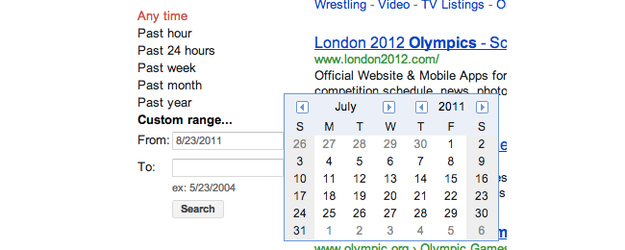
Google is a data-driven company, and it knows exactly what kinds of things people are searching for. And much of the time, according to the company, it's new things.
Back in 2011, Google adjusted its results to favor "fresher" content. In the post announcing the change, Googler Amit Singhal even used the Olympics as an example:
If I search for [olympics], I probably want information about next summer’s upcoming Olympics, not the 1900 Summer Olympics (the only time my favorite sport, cricket, was played). Google Search uses a freshness algorithm, designed to give you the most up-to-date results, so even when I just type [olympics] without specifying 2012, I still find what I’m looking for.
This is, I think, how most people use Google search. They hear about something through Google or somewhere else, from a friend or the news or another site, and want the most relevant information about it. In many cases, that's the most recent information.
With the addition of an aggressive but threadbare social search layer in January, based on Google+, the Google search experience has become extremely good at surfacing "new" things. (Or, at least, things that Google+ users have shared.) Overall, it's often a welcome change from the days when a search for a recent event would get you a year-old article on its planning, or require you to hop over to Google News. In this sense, Google is right — most of the time.
The problem is that Google search's intense focus on the recent past can render it nearly useless for finding older material, particularly when the recent events are widely covered. Searching for a presidential candidate's name, for example, will bring you a few expected results — official sites, Wikipedia pages — buried in a redundant, confusing pile of extremely similar news articles about said candidate's most recent announcement, or gaffe.
It's far worse when the subject is less famous, though: the controversy over the recent suspension of a journalist's Twitter account after he was critical of NBC's Olympic coverage hinged on the claim that he had posted an NBC executive's private email address. Verifying whether or not this address was "widely available" online just days earlier should have been easy; instead, it was so difficult that Danny Sullivan, who is quite possibly the foremost expert on Google Search outside of Google, wrote more than a thousand words about the process.
It's necessary for Google to keep the results for its queries fresh, and the "quickly looking something up" use case is vastly more important in most cases than the "specific, deep research" use case. And in theory, the proper addition of social results into search would allow old and new information to form a coherent, structured whole. But as is, Google's "fresh" results are often a problem. Sometimes I look to Google for deep context — the Olympics is a great example — only to find the search results pages obliterated by nowness. Google search routinely imprisons me in its week-long, day-long, hour-long, sometimes minutes-long algorithmic attention span, to the point of making me wonder if the historical (and not even, like, capital-H Historical) events I'm trying to find out more about even happened. I mean, if they're not on Google...

You can disable personalized searches, which helps a bit, but the only way to really escape the recent past on Google, as far as I can tell, is to use the "Custom Range" search tool. The one-click options only let you narrow results to various windows up to and including the present; the Custom Range box lets you specify a date at which you want the results to stop. It kiiinnndaa works, but it's neither easy to use nor reliable.
What I'd really love is an instant "Older Results" option. Thinly sliced "Before an hour/24hrs/3 days/1 week" options would be great, but I'd happily settle for a "nothing from the last week" option, if that would be easier. Anything to break us out of the data prison of the last news cycle.
It doesn't have to work perfectly. It just needs to be there.
